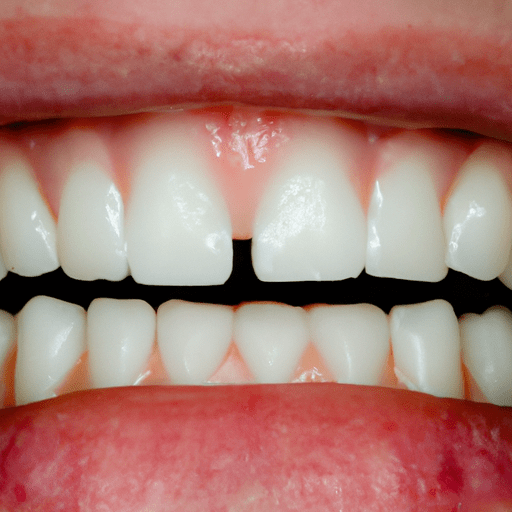Have you ever wondered if there is a link between sinus problems and snoring? Well, it turns out there might be. Sinus problems, such as nasal congestion and inflammation, can actually contribute to snoring. When your sinuses are congested, it can make it harder to breathe through your nose, forcing you to breathe through your mouth instead. This mouth breathing can lead to snoring, as the air passes over the tissues in the throat, causing them to vibrate and produce those familiar sounds. So, if you’ve been struggling with snoring and sinus problems, it’s worth exploring this potential connection and seeking solutions that can alleviate both issues.
Understanding Sinusitis
What is Sinusitis
Sinusitis, commonly known as a sinus infection, is an inflammation of the tissues lining the sinuses. The sinuses are hollow cavities located in the skull, behind the nose, cheeks, and forehead. They are responsible for producing mucus, which helps moisten the air we breathe and keeps our nasal passages clear. When the sinuses become infected or blocked, it can lead to various uncomfortable symptoms.
Different Types of Sinusitis
There are several different types of sinusitis, including acute sinusitis, subacute sinusitis, chronic sinusitis, and recurrent sinusitis. Acute sinusitis typically lasts for a few weeks and is often caused by a viral infection, such as the common cold. Subacute sinusitis lasts for a slightly longer duration, usually between four to eight weeks, while chronic sinusitis persists for more than eight weeks. Recurrent sinusitis occurs when a person experiences multiple episodes of sinusitis throughout the year.
Causes of Sinusitis
Sinusitis can be caused by several factors, with the most common being viral infections. These infections can cause inflammation and swelling of the sinus tissues, leading to blockage. Bacterial infections can also cause sinusitis, usually as a result of a secondary infection following a viral infection. Other factors that can contribute to sinusitis include allergies, nasal polyps, deviated nasal septum, and immune system disorders. It is essential to identify the underlying cause of sinusitis to determine the most appropriate treatment plan.
Understanding Snoring
What is Snoring
Snoring is a common condition that occurs when airflow through the mouth and nose is partially blocked during sleep. It is often characterized by a vibrating sound caused by the relaxed upper airway structures, including the throat, uvula, and soft palate. While occasional snoring is generally harmless, chronic snoring can indicate an underlying health issue and may disrupt sleep patterns for both the snorer and their sleep partner.
Types of Snoring
Snoring can manifest in different ways, and understanding these variations can help determine the potential underlying causes. Nasal snoring, which originates from the nasal passage, is often associated with sinus problems, such as congestion or inflammation. Mouth snoring occurs when the airway muscles in the throat and mouth relax, leading to blocked airflow. Mixed snoring is a combination of both nasal and mouth snoring, and usually requires a multifaceted approach to treatment.
Causes of Snoring
Snoring can have various causes, including anatomical factors, obesity, alcohol consumption, and sleep position. Anatomical factors, such as a deviated septum, enlarged tonsils, or a narrow throat, can contribute to snoring by obstructing the airway. Excess weight and obesity can also increase the likelihood of snoring, as fatty tissues in the throat may restrict airflow. Alcohol consumption relaxes the muscles in the airway, leading to increased snoring. Additionally, sleeping on your back can cause the tongue to fall back and obstruct the airway, resulting in snoring.
Link Between Sinusitis and Snoring
How Sinusitis May Cause Snoring
There is a clear connection between sinusitis and snoring. When the sinuses become inflamed or blocked, it can lead to nasal congestion and difficulty breathing through the nose. Because the nose acts as a primary pathway for airflow during sleep, any obstruction can result in mouth breathing and subsequently snoring. Sinusitis can cause nasal swelling and mucus buildup, further contributing to snoring by narrowing the airway passage.
Scientific Studies on the Connection
Several scientific studies have explored the link between sinusitis and snoring. Research has found that individuals with chronic sinusitis are more likely to experience snoring symptoms. A study published in the American Journal of Otolaryngology found that out of 150 participants with chronic sinusitis, 82% reported snoring. Another study in the International Journal of Otolaryngology and Head & Neck Surgery suggested that sinus surgeries aimed at improving sinusitis symptoms can also lead to a reduction in snoring.
Common Factors Causing Both Sinusitis and Snoring
Certain factors can contribute to both sinusitis and snoring. Allergies, for instance, can cause inflammation of the sinuses and nasal passages, leading to both congestion and difficulty breathing. Smoking, environmental irritants, and exposure to pollutants can also trigger sinusitis symptoms and contribute to snoring. Moreover, structural abnormalities in the nasal passage, such as nasal polyps or a deviated septum, can increase the chances of both sinusitis and snoring.
Symptoms of Sinus-Induced Snoring
Signs of Sinus Problems that Lead to Snoring
When sinusitis contributes to snoring, several signs and symptoms may become apparent. These include persistent nasal congestion, difficulty breathing through the nose, frequent nasal discharge (either clear or discolored), facial pain or pressure, headaches, and reduced sense of smell. It is essential to pay attention to these symptoms, particularly if they are accompanied by snoring, as they may indicate sinus-induced snoring.
Other Symptoms Associated with Sinusitis and Snoring
In addition to the common symptoms mentioned earlier, sinusitis and snoring can both lead to other related health issues. Sleep disruptions caused by snoring and difficulty breathing through the nose can result in daytime fatigue, irritability, poor concentration, and decreased productivity. Chronic snoring may also contribute to an increased risk of cardiovascular problems, including high blood pressure, stroke, and heart disease.
How to Recognize Snoring Due to Sinusitis
To recognize snoring caused specifically by sinusitis, it is essential to identify the concurrent sinus symptoms. If you consistently experience nasal congestion, sinus pressure, and difficulty breathing through the nose, along with snoring, it is likely that your snoring is related to sinus issues. Additionally, if sinus medications or treatments aimed at alleviating sinusitis symptoms also improve your snoring, it further supports the connection between the two.
The Anatomy of the Nasal Passage
The Sinuses and Nasal Passage
To understand how sinusitis and snoring are connected, it is important to familiarize yourself with the anatomy of the nasal passage. The nasal passage consists of the nasal cavities, which are lined with mucous membranes and contain the turbinates, structures that help filter and humidify the air we breathe. The sinuses, located adjacent to the nasal cavities, are air-filled spaces that produce mucus and aid in maintaining optimal nasal function.
How a Blocked Sinus Can Affect Breathing
When a sinus becomes blocked due to inflammation, swelling, or excessive mucus production, it can impede the normal flow of air through the nasal passage. This obstruction forces individuals to breathe through their mouth, which increases the chances of snoring. Additionally, a blocked sinus can disrupt the pressure balance within the nasal passage, impacting the overall airflow and potentially aggravating snoring symptoms.
Connection Between Nasal Passage Anatomy and Snoring
The anatomy of the nasal passage plays a crucial role in determining the likelihood of snoring. A narrow nasal passage, resulting from structural issues like a deviated septum, can contribute to airway obstruction and snoring. Similarly, enlarged turbinates, which can be caused by chronic sinusitis, may restrict airflow and increase the chances of snoring. Addressing any underlying nasal passage issues through appropriate treatment can help alleviate snoring caused by these anatomical factors.
Risk Factors for Snoring Caused by Sinusitis
Health Conditions That Increase the Risk
Several health conditions can increase the risk of snoring caused by sinusitis. Chronic allergies, including allergic rhinitis, can lead to persistent nasal congestion and inflammation, making individuals more susceptible to both sinusitis and snoring. Asthma, a chronic respiratory condition characterized by inflammation and narrowing of the airways, can also contribute to snoring symptoms by obstructing airflow. It is important for individuals with these conditions to manage them effectively to minimize the risk of sinus-induced snoring.
Environmental Factors
Environmental factors can also play a role in exacerbating sinusitis and contributing to snoring. Exposure to pollutants, such as smoke, dust, and strong odors, can irritate the nasal passages and trigger sinusitis symptoms. Allergens, such as pollen, pet dander, and mold, can also contribute to sinus inflammation and congestion. Maintaining a clean and allergen-free environment, using air purifiers, and taking necessary precautions can help reduce the impact of these environmental factors on sinusitis-related snoring.
Lifestyle Choices Increasing the Risk
Certain lifestyle choices can increase the risk of snoring caused by sinusitis. Smoking, for example, can aggravate sinus inflammation and contribute to nasal congestion, making snoring more likely. Excessive alcohol consumption, especially before sleep, can relax the throat muscles and obstruct the airway, leading to snoring. Adopting a healthy lifestyle, including quitting smoking and moderating alcohol intake, can reduce the risk of snoring associated with sinusitis.
Implications of Undiagnosed Sinusitis on Snoring
Chronic Snoring Due to Untreated Sinusitis
Untreated sinusitis can lead to chronic snoring, as the underlying inflammation and congestion persist. Chronic snoring can disrupt sleep patterns, leading to poor sleep quality for both the snorer and their sleep partner. It can also strain relationships and cause daytime fatigue, irritability, and decreased productivity. Addressing the sinusitis effectively and managing the snoring symptoms can greatly improve the overall quality of life for individuals affected by these conditions.
Health Risks Associated with Chronic Snoring
Chronic snoring can have several health risks and implications. It can contribute to the development of cardiovascular problems, including high blood pressure, heart disease, and stroke. The repeated interruptions in breathing during sleep, known as sleep apnea, can strain the heart and lead to irregular heart rhythms. Furthermore, chronic snoring may contribute to excessive daytime sleepiness, impaired cognitive function, and an increased risk of accidents and injuries.
Impact on Quality of Life
The impact of undiagnosed sinusitis and untreated snoring on an individual’s quality of life can be significant. Chronic snoring and interrupted sleep can leave individuals feeling exhausted and moody throughout the day, impacting their personal and professional lives. The strain it places on relationships, particularly with sleep partners, can also lead to increased stress and conflicts. By addressing and treating both sinusitis and snoring, individuals can reclaim their quality of life and enjoy restful and refreshing sleep once again.
Prevention and Treatment Options
Preventive Measures for Sinusitis and Snoring
Taking proactive steps to prevent sinusitis and snoring is crucial for maintaining good respiratory health. Maintaining good hygiene, such as washing hands regularly and avoiding close contact with individuals with respiratory infections, can reduce the risk of sinusitis. Nasal irrigation with saline solutions can help clear the nasal passages and prevent congestion. Avoiding known allergens and environmental irritants, such as smoke and strong perfumes, can also minimize the risk of sinusitis and subsequent snoring.
Medical Treatments Available
Medical treatments for sinusitis and snoring may vary depending on the severity and underlying cause of the conditions. Over-the-counter nasal sprays and decongestants can provide temporary relief for sinusitis symptoms. For chronic or recurrent sinusitis, prescription medications, such as antibiotics or corticosteroids, may be necessary. Continuous Positive Airway Pressure (CPAP) machines and nasal dilators can be effective in managing snoring caused by nasal congestion. Seeking medical advice from a healthcare professional or an otolaryngologist can help determine the most appropriate treatment options.
Surgical Options for Severe Cases
In severe cases of sinusitis or snoring, surgical interventions may be considered. Functional endoscopic sinus surgery (FESS) is a common procedure aimed at improving sinus drainage and reducing inflammation. Septoplasty, a surgical procedure to correct a deviated septum, can help alleviate airflow obstruction. Other surgical options for snoring include uvulopalatopharyngoplasty (UPPP), in which excess tissue in the throat is removed, and radiofrequency ablation, which shrinks excess tissue to open the airway. Surgical interventions should be discussed with a qualified healthcare professional to determine the necessity and suitability for each individual case.
Role of Lifestyle Changes and Home Remedies
Healthy Habits to Prevent Sinusitis and Snoring
In addition to medical treatments, adopting healthy lifestyle habits can play a significant role in managing sinusitis and reducing snoring symptoms. These habits include maintaining proper hygiene, such as regularly cleaning bedding, avoiding allergens, and keeping living spaces well-ventilated. Staying hydrated, consuming a balanced diet rich in fruits and vegetables, and exercising regularly can enhance overall immunity and respiratory health. Additionally, avoiding smoking and excessive alcohol consumption can improve sinus health and reduce the likelihood of snoring.
Effective Home Remedies
Home remedies can provide relief for sinusitis symptoms and potentially help reduce snoring. Nasal irrigation using a neti pot or saline solution can help flush out mucus and relieve congestion. Warm compresses applied to the sinus areas can soothe inflammation and alleviate discomfort. Elevating the head while sleeping can promote proper nasal airflow and reduce snoring. Steam inhalation, using essential oils such as eucalyptus or peppermint, can also help clear nasal passages and ease symptoms. However, it is important to consult with a healthcare professional before trying any home remedies, especially if you have severe or chronic sinusitis.
Importance of Sleep Hygiene
Maintaining good sleep hygiene is essential for managing snoring and promoting overall well-being. Establishing a regular sleep schedule, ensuring a comfortable sleep environment, and creating a relaxing bedtime routine can improve sleep quality. Avoiding caffeine and stimulating activities close to bedtime, such as using electronic devices, can aid in falling asleep more easily. It is also important to prioritize sleep and ensure adequate hours of rest each night, as sleep deprivation can worsen sinusitis symptoms and contribute to snoring.
When to Consult a Doctor
Recognizing the Severity of Symptoms
If you are experiencing persistent or worsening sinusitis symptoms, such as severe facial pain, high fever, or nasal discharge containing blood, it is essential to consult a doctor promptly. These symptoms may indicate a more severe infection or underlying health issue that requires medical attention. Additionally, if snoring is disrupting your sleep or causing excessive daytime sleepiness, it may be beneficial to seek professional advice for proper diagnosis and treatment.
The Necessity of Professional Medical Advice
While home remedies and lifestyle changes can provide relief for mild cases of sinusitis and snoring, it is crucial to consult with a healthcare professional for persistent or severe symptoms. A doctor can assess your medical history, perform a physical examination, and order appropriate diagnostic tests to determine the underlying cause of your symptoms. They can then recommend suitable treatment options tailored to your specific needs, ensuring effective management and long-term relief.
Preparation for Medical Consultation
Before your medical consultation, it is helpful to prepare by documenting your symptoms, including details such as frequency, duration, and any aggravating or relieving factors. Providing a comprehensive overview of your symptoms and any relevant medical history will assist your doctor in making an accurate diagnosis. Be prepared to discuss your sleep patterns, lifestyle habits, and any previous treatments attempted. By actively participating in the consultation, you can work collaboratively with your doctor to find the most suitable treatment plan for your sinusitis and snoring concerns.
In summary, sinusitis and snoring are interconnected conditions that can significantly impact an individual’s respiratory health, sleep quality, and overall well-being. Understanding the various types and causes of sinusitis, as well as the types and causes of snoring, is crucial in recognizing the link between the two. By addressing the underlying sinus problems and managing snoring symptoms effectively, individuals can experience improved sleep, reduced health risks, and an enhanced quality of life. Prompt medical attention, lifestyle changes, and appropriate treatment options tailored to individual needs can pave the way to better respiratory health and restful nights.








